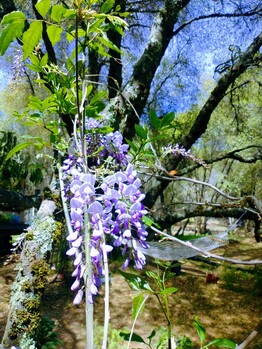 We embark into the holiday season today. A season of connection, love, friendship and community. A season of over spending, over consumption, separation and loneliness. I have always found much comfort, grounding and solace within ancient indigenous wisdom, In my energetic sense, it feels more true and real in comparison to much of what we see in the world today. This first post is in homage to Robin Wall Kimmerer, I came across her writing relatively recently. She speaks of Reciprocity in a way that touched my soul and gave poetic words to the principle behind the endeavor I have dedicated my life towards. Thank you Robin! (You can find her body of work in this link.) Below is an essay written by Robin. I have emboldened her use of the term "reciprocity" to support a modern understanding of what this concept meant to our elders. She does a magical job! --- Robin's words follow below--- Returning the Gift We are showered every day with the gifts of the Earth, gifts we have neither earned nor paid for: air to breathe, nurturing rain, black soil, berries and honeybees, the tree that became this page, a bag of rice and the exuberance of a field of goldenrod and asters at full bloom. Though the Earth provides us with all that we need, we have created a consumption-driven economy that asks, “What more can we take from the Earth?” and almost never “What does the Earth ask of us in return?” The premise of Earth asking something of me—of me!—makes my heart swell. I celebrate the implicit recognition of the Earth’s animacy, that the living planet has the capacity to ask something of us and that we have the capacity to respond. We are not passive recipients of her gifts, but active participants in her well-being. We are honored by the request. It lets us know that we belong. For much of human’s time on the planet, before the great delusion, we lived in cultures that understood the covenant of reciprocity, that for the Earth to stay in balance, for the gifts to continue to flow, we must give back in equal measure for what we take. In the teachings of my Potawatomi ancestors, responsibilities and gifts are understood as two sides of the same coin. The possession of a gift is coupled with a duty to use it for the benefit of all. A thrush is given the gift of song—and so has a responsibility to greet the day with music. Salmon have the gift of travel, so they accept the duty of carrying food upriver. So when we ask ourselves, what is our responsibility to the Earth, we are also asking, “What is our gift?” As human people, most recently evolved here, we lack the gifts of our companion species, of nitrogen fixation, pollination, and 3000-mile migrations under magnetic guidance. We can’t even photosynthesize. But we carry gifts of our own, which the Earth urgently needs. Among the most potent of these is gratitude. Gratitude may seem like weak tea given the desperate challenges that lie before us, but it is powerful medicine, much more than a simple thank you. Giving thanks implies recognition not only of the gift, but of the giver. When I eat an apple, my gratitude is directed to that wide-armed tree whose tart offspring are now in my mouth, whose life has become my own. Gratitude is founded on the deep knowing that our very existence relies on the gifts of beings who can in fact photosynthesize. Gratitude propels the recognition of the personhood of all beings and challenges the fallacy of human exceptionalism—the idea that we are somehow better, more deserving of the wealth and services of the Earth than other species. The evolutionary advantage for cultures of gratitude is compelling. This human emotion has adaptive value, because it engenders practical outcomes for sustainability. The practice of gratitude can, in a very real way, lead to the practice of self-restraint, of taking only what we need. Acknowledging the gifts that surround us creates a sense of satisfaction, a feeling of enough-ness which is an antidote to the societal messages that drill into our spirits telling us we must have more. Practicing contentment is a radical act in a consumption-driven society. Indigenous story traditions are full of cautionary tales about the failure of gratitude. When people forget to honor the gift, the consequences are always material as well as spiritual. The spring dries up, the corn doesn’t grow, the animals do not return, and the legions of offended plants and animals and rivers rise up against the ones who neglected gratitude. The Western storytelling tradition is strangely silent on this matter, and so we find ourselves in an era when we are rightly afraid of the climate we have created. We human people have protocols for gratitude; we apply them formally to one another. We say thank you. We understand that receiving a gift incurs a responsibility to give a gift in return. The next step in our cultural evolution, if we are to persist as a species on this beautiful planet, is to expand our protocols for gratitude to the living Earth. Gratitude is most powerful as a response to the Earth because it provides an opening to reciprocity, to the act of giving back. Reciprocity—returning the gift—is not just good manners; it is how the biophysical world works. Balance in ecological systems arises from negative feedback loops, from cycles of giving and taking. Reciprocity among parts of the living Earth produces equilibrium, in which life as we know it can flourish. When the gift is in motion, it can last forever. Positive feedback loops, in which interactions spur one another away from balance, produce radical change, often to a point of no return. How can we reciprocate the gifts of the Earth?
Gratitude is our first, but not our only gift. We are storytellers, music makers, devisers of ingenious machines, healers, scientists, and lovers of an Earth who asks that we give our own unique gifts on behalf of life. Let us live in a way that Earth will be grateful for us. You can find the original publication here.
1 Comment
|
AuthorsThe contributing members of this blog are herbalists, teachers, visionaries, among others. All women, heeding the call to bring our the planet into harmonious balance. Archives
December 2023
Categories |

 RSS Feed
RSS Feed